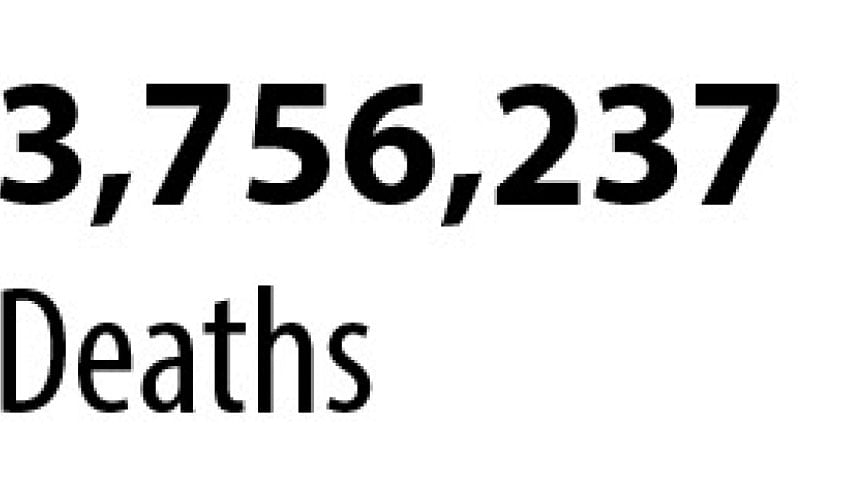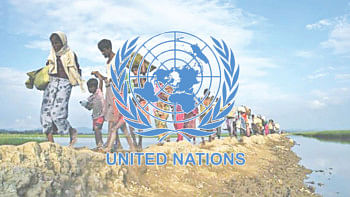WHO warns of ‘two-track pandemic’
World Health Organization Director-General Tedros Adhanom Ghebreyesus said unequal distribution of vaccines has allowed the coronavirus to continue spreading, thus increasing odds of a variant emerging that could render these treatments ineffective.
"Increasingly, we see a two-track pandemic: many countries still face an extremely dangerous situation, while some of those with the highest vaccination rates are starting to talk about ending restrictions," he told a media briefing from WHO headquarters in Geneva on Monday evening.
More than 2.15 billion doses of Covid-19 vaccines have been injected in at least 215 territories around the world, according to an AFP count.
But just 0.3 percent have been administered in the 29 lowest-income countries, home to nine percent of the world's people.
"Inequitable vaccination is a threat to all nations, not just those with the fewest vaccines," said Tedros.
He called for Covid-19 vaccine manufacturers to give Covax first refusal on new doses, or commit half of their volumes to the global jab equity scheme.
Tedros said manufacturers should turn their attention to the Covax facility, which has struggled to get donation-funded doses to poorer countries.
He voiced his frustration that several poor countries have been unable to immunise their health workers, the elderly and other populations most vulnerable to severe Covid-19 disease.
Some rich countries meanwhile, having bought up vaccine supply, are drawing up preparations to start vaccinating children, he said.
Tedros has called for a massive global effort to vaccinate at least 10 percent of the population of all countries by September, and at least 30 percent by the end of the year.
That will require an additional 250 million doses by September, with 100 million doses in June and July alone.
"This weekend, the G7 leaders will meet for their annual summit," Tedros told journalists. "These seven nations have the power to meet these targets.
"I am calling on the G7 not just to commit to sharing doses, but to commit to sharing them in June and July," he said.
"I also call on all manufacturers to give Covax first right of refusal on new volume of Covid-19 vaccines, or to commit 50 percent of their volumes to Covax this year," Tedros added.
Meanwhile, nearly 30 celebrities, from singer Katy Perry to footballer David Beckham, called on the G7 to share Covid-19 vaccines with poorer countries.
The entertainment and sports figures urged the seven countries -- France, Italy, the UK, Canada, Japan, Germany and the United States -- to pledge at least 20 percent of their supply between June and August, amounting to 150 million doses.
"The world has spent a year and a half battling the Covid-19 pandemic, but the virus is still spreading in many countries and producing new variants with the potential to put us all back where we started," the missive warned yesterday.
"This means more school closures, more healthcare disruptions, and greater economic fallout -- threating the futures of families and children everywhere," it said.
'VACCINE FUND'
The pandemic has killed at least 3,739,777 people worldwide since the virus first emerged in December 2019, according to an AFP compilation of official data yesterday.
Vietnam, once a model for its successful handling of the pandemic, has started asking for public donations to buy vaccines as it struggles to contain a new coronavirus wave.
The Southeast Asian country has vaccinated only about one percent of its population of nearly 100 million, and authorities have become increasingly alarmed by a recent spike in cases.
Since last week, mobile phone users have received up to three text messages urging them to contribute to a Covid-19 vaccine fund, while civil servants have been encouraged to part with a day's pay.
In India, officials and health experts welcomed a federal government plan to give free shots to all adults as a step in the right direction yesterday, but cautioned that vaccinations must be accelerated to prevent new surges in infections, reports Reuters.
The government has placed a fresh order of 44 crore doses of Covid-19 vaccines Covishield and Covaxin. The 44 crore doses of vaccines will be available till December this year, an official statement said.
China has approved the emergency use of Sinovac vaccine for those as young as three, making it the first country to offer jabs to young children.
"In recent days, the Sinovac vaccine was approved for emergency use in three- to 17-year-olds," a spokesperson for Sinovac said.


 For all latest news, follow The Daily Star's Google News channel.
For all latest news, follow The Daily Star's Google News channel. 



Comments